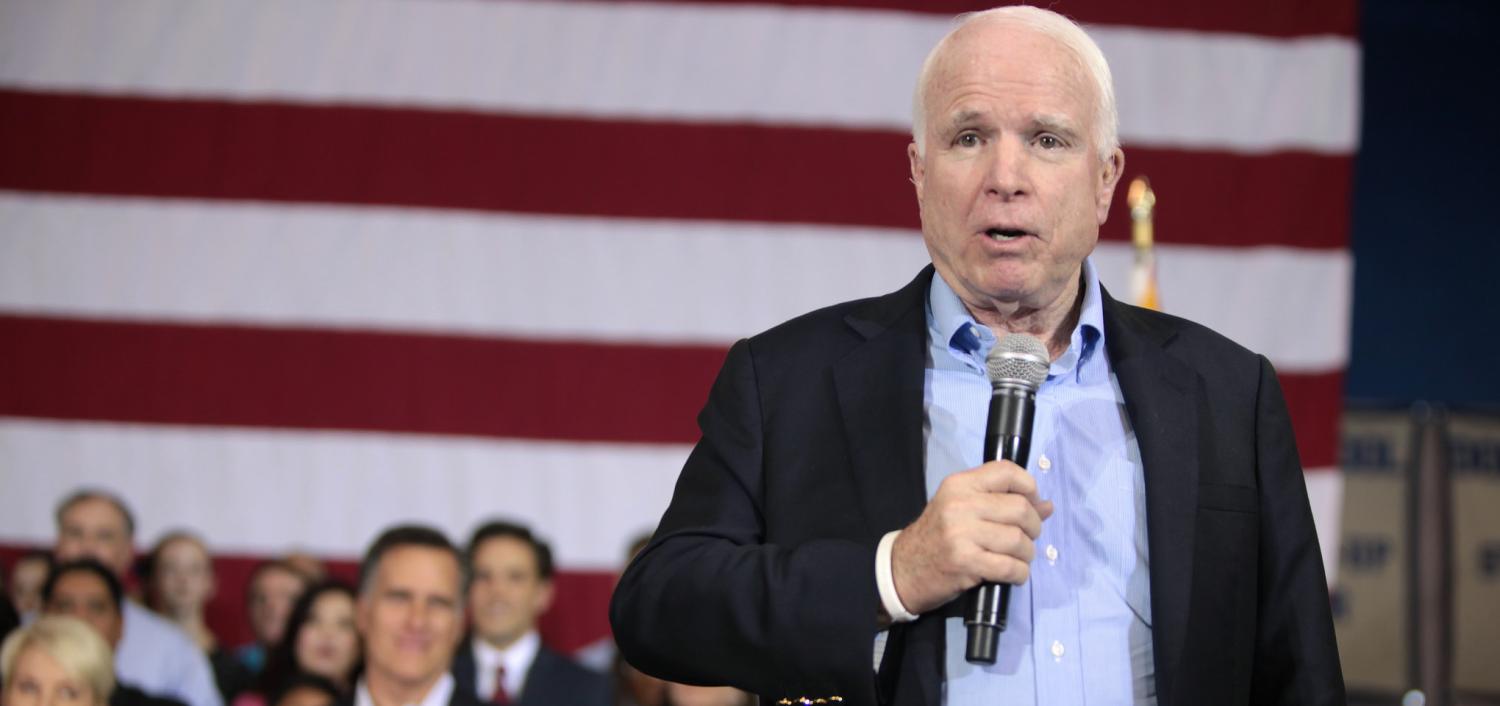The week that was on The Interpreter.
Robert Kelly argues that the reaction to the death of US Senator John McCain is as much about President Donald Trump as McCain.
McCain represents an earlier GOP which, for all its faults, was at least tethered to reality, not openly racist and sexist, not blatantly corrupt, not frighteningly conspiratorial, and at least nominally committed to standards in public life.
And David Lambertson reflects McCain’s life.
Experiences such as John McCain’s are a great differentiator – some men and women stand on principle and act with honour in the face of suffering and danger. Others simply cannot. We want to think we would have acted heroically; we know that he did.
Vanessa Hua on the issue of Chinese “birth tourism” in North America:
Being pregnant is one of the most vulnerable times in a woman’s life. What was it like to be so far from friends and family? What did US citizenship mean to them, if they were to go to such trouble, at such an expense, to obtain it for their children?
New Caledonia’s independence referendum is two months away, with political and practical preparations accelerating. Denise Fisher:
Ongoing constructive dialogue and peaceful campaigning have been marred by division and boycotts, and a worrying three-week long blockade over nickel mining by some young Kanaks.
Controversy over the granting of a visa to Chelsea Manning to visit Australia sparked up this week. Rodger Shanahan:
The Australian Government is well within its rights to question whether someone convicted of espionage, dishonourably discharged from the US military and whose reckless actions while deployed on operations were described by a judge as dangerous to others should enter the country, let alone be paid for her appearance. Manning is not, and never has been, a whistleblower.
Libyan elections are approaching, with a surprising possible candidate: Saif Gaddafi. Casper Wuite:
Saif Gaddafi would need to convince Libya’s population of his fitness for leadership, particularly after the 2011 civil war. He is seeking to benefit from the chronic sense of insecurity and economic uncertainty that has plagued the country since 2011. While nostalgia for the relative stability of the era before the Arab uprising is widespread throughout the region, and public resentment of Gaddafi has subdued over the last six years, the country remains divided.
The Belt and Road Initiative has become China's biggest brand. Merriden Varrall:
Why BRI as a clever branding exercise matters to the rest of the world is what it tells us about what’s going on within China. We should not take Xi at his word and just accept the promotional imagery of China as strong, coherent, and in top shape to take on a global leadership role.
The debate over the legacy of former Australian foreign minister Julie Bishop is already underway. James Curran:
The “rules-based order” that Bishop ceaselessly invoked was well and truly creaking before Trump came to office. Both Bishop and prime minister Malcolm Turnbull struggled at times to get the tone right in facing these two headwinds – an inward-looking America and a muscular, aggressive China spreading its strategic wings in the region.
Former United Nations Secretary General Kofi Annan died last week at the age of 80. Simon Chesterman:
Like his predecessors, Annan would sometimes joke that the abbreviation used within the United Nations for his position – “SG” – actually stood for “scapegoat”. As the Iraq war metastasized from mistake to debacle, Annan was a convenient whipping boy.
Indonesian presidential candidates Joko Widodo and Prabowo Subianto chose their running mates for next year’s election campaign. Greta Nabbs-Keller:
Disappointing for some, the vice presidential picks are insightful in what they reveal about Indonesia’s contemporary politics. Indonesia’s secular-based parties must now edge to the religious right in order to become more electable; a significant shift over the last 20 years, where it was previously the conservative Islamic parties forced to the centre.
In India, a report ranked states by their governance levels highlighted great disparities between north and south. Aarti Betigeri:
With the divide between north and south so marked that you could be forgiven for forgetting they are part of the same country, there is a growing recognition by international organisations and foreign governments that it might be more effective to deal with individual states rather than the central government.
